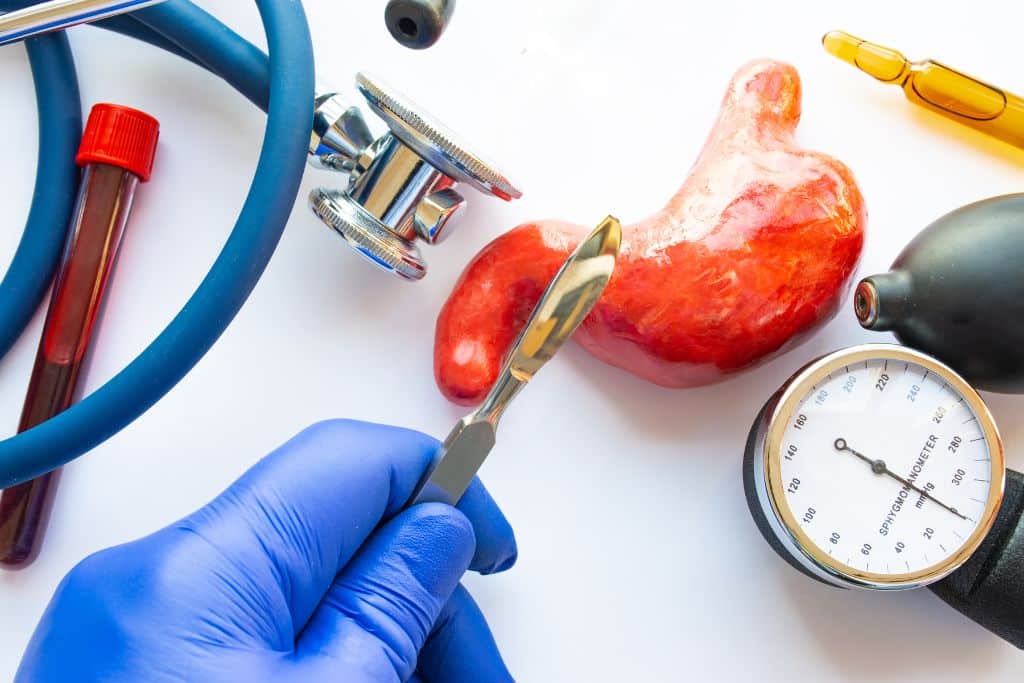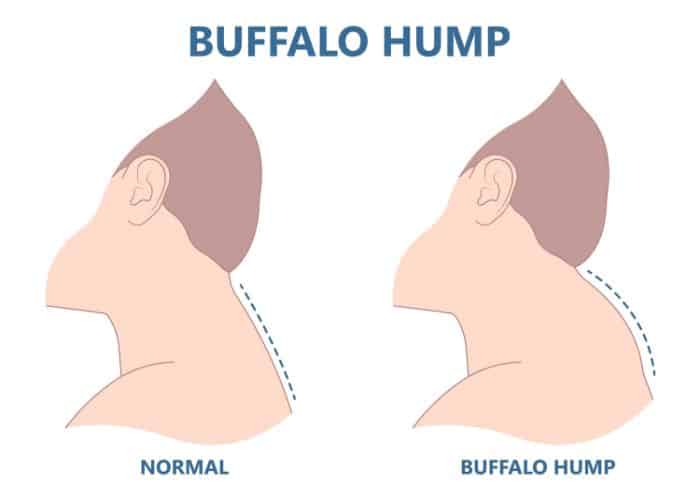Scoliosis is a spinal condition that affects millions of people worldwide. It is characterized by an abnormal curvature of the spine, which can cause pain, discomfort, and reduced mobility. While the exact cause of scoliosis is unknown, it is believed to be a combination of genetic and environmental factors.
One question that often arises is whether weight gain can make scoliosis worse. While there is no definitive answer, some studies suggest that excess weight can increase the risk of scoliosis progression. This is because weight gain puts additional stress on the spine, which can exacerbate the curvature and cause more severe symptoms. However, more research is needed to fully understand the relationship between weight gain and scoliosis.
Contents
Understanding Scoliosis
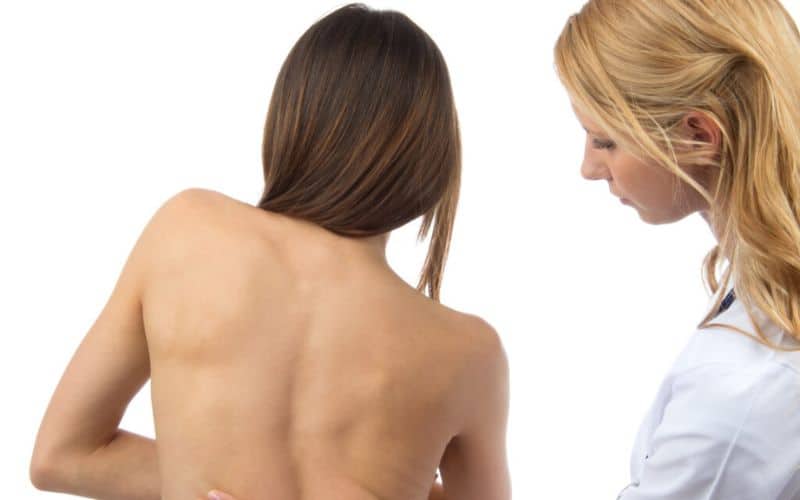
Scoliosis is a medical condition that causes a sideways curvature of the spine. It can occur in people of all ages, but it is most commonly diagnosed in adolescents. While the cause of most cases of scoliosis is unknown, it can be associated with conditions such as cerebral palsy and muscular dystrophy.
The severity of scoliosis can vary from mild to severe, and symptoms can include back pain, uneven shoulders or hips, and difficulty breathing. Treatment options depend on the severity of the condition and can range from observation to bracing or surgery.
It is important to note that weight gain does not cause scoliosis, but it can potentially worsen the condition in some cases. Excess weight can put additional stress on the spine, which can exacerbate the curvature and lead to increased pain and discomfort.
Maintaining a healthy weight and engaging in regular exercise can help manage the symptoms of scoliosis and prevent further progression of the condition. It is important to consult with a healthcare provider to determine the best course of treatment for individual cases of scoliosis.
Weight Gain and Its Impact
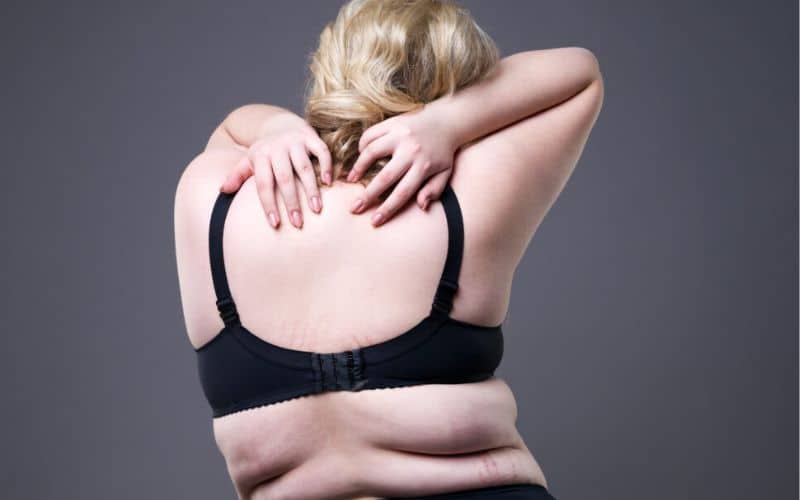
While there is no direct evidence that weight gain can make scoliosis worse, there are some indirect effects that can occur. One study found that obesity was associated with a higher risk of developing scoliosis, and another study found that obese patients were more likely to have a severe curvature of the spine.
It is also important to note that weight gain can have a negative impact on bone density, which can be a concern for scoliosis patients. Low body weight has been shown to result in severe bone loss in scoliosis patients, including changes to the skeletal structure. Therefore, it is important for scoliosis patients to maintain a healthy weight to support their bone health.
In addition to bone health, weight gain can also affect scoliosis patients in other ways. For example, excess weight can put additional strain on the spine and muscles, which can exacerbate scoliosis-related pain and discomfort. Losing weight can help alleviate some of this strain and reduce symptoms.
Overall, while weight gain may not directly cause scoliosis to worsen, it can have indirect effects on bone health and exacerbate symptoms. Therefore, it is important for scoliosis patients to maintain a healthy weight and speak with their healthcare provider about any concerns they may have.
Correlation Between Weight Gain and Scoliosis
Scoliosis is a condition that affects the spine, causing it to curve sideways. While the cause of most scoliosis cases is unknown, it is believed that genetics may play a role. However, recent studies have shown that weight gain can also have an impact on scoliosis.
Increased Pressure on Spine
Excess weight can put additional pressure on the spine, which can cause the curvature to worsen over time. This is because the spine is responsible for supporting the body's weight, and any additional weight can put more stress on the spine. This can lead to an increase in the curvature of the spine, which can cause pain and discomfort.
Altered Posture
Weight gain can also alter posture, which can exacerbate scoliosis. When a person gains weight, their center of gravity shifts, causing them to lean forward. This can put additional stress on the spine, which can cause the curvature to worsen. Additionally, weight gain can cause the pelvis to tilt, which can also affect the curvature of the spine.
Aggravated Pain and Discomfort
Scoliosis can cause pain and discomfort, and weight gain can make these symptoms worse. Excess weight can put additional pressure on the spine, causing more pain and discomfort. Additionally, weight gain can cause inflammation, which can also contribute to pain and discomfort.
In conclusion, there is a correlation between weight gain and scoliosis. Excess weight can put additional pressure on the spine, alter posture, and aggravate pain and discomfort. Therefore, it is important for individuals with scoliosis to maintain a healthy weight to help manage their symptoms.
Studies Supporting the Theory
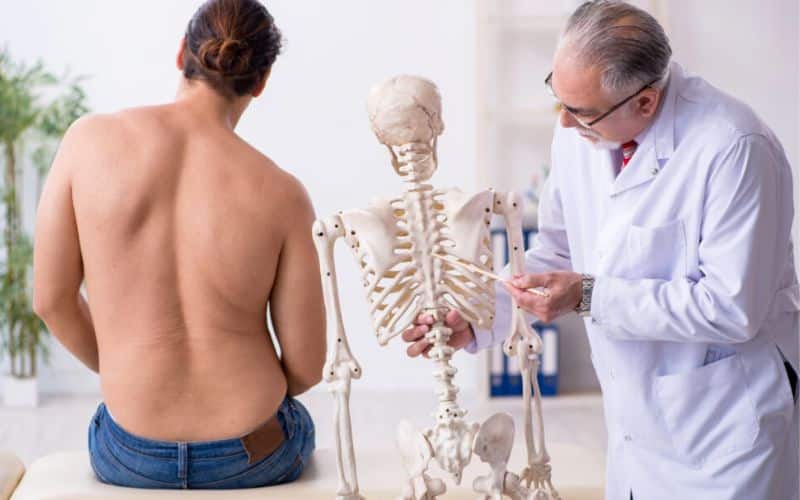
Several studies have investigated the relationship between weight gain and scoliosis progression, supporting the theory that weight gain can make scoliosis worse.
A multicenter retrospective study of preoperative characteristics and surgical outcomes in adolescent idiopathic scoliosis (AIS) found that obesity can affect curve magnitude at first presentation to an orthopedic surgeon and can also lead to worse surgical outcomes. The study concluded that "obesity in AIS is associated with larger curve magnitude at presentation, greater blood loss during surgery, and longer operative times." (PubMed)
Another study found that core-based exercise can have a positive effect on people with scoliosis. The study included patients with a Cobb angle greater than 10 degrees and found that core-based exercise can significantly reduce the Cobb angle and improve balance and posture. (PubMed)
A third study compared the percentile weight gain of growth-friendly techniques in early-onset scoliosis (EOS) patients, particularly in underweight patients. The study found that weight gain was significantly greater in patients treated with growth-friendly techniques compared to those treated with traditional methods. The study concluded that "growth-friendly techniques can improve nutritional status and weight gain in underweight EOS patients." (PubMed)
Overall, these studies suggest that weight gain can have a negative impact on scoliosis progression and that weight management should be considered as part of scoliosis treatment.
Possible Complications
While weight gain may not directly cause scoliosis, it can lead to complications for those who already have the condition. Here are some possible complications that can arise from weight gain:
- Increased curvature: Weight gain can put additional pressure on the spine, which can cause the curvature to worsen over time. This is especially true for those with moderate to severe scoliosis.
- Pain and discomfort: As the curvature of the spine increases, it can cause pain and discomfort in the back, neck, and shoulders. This can make it difficult to perform everyday activities and can lead to a decreased quality of life.
- Decreased lung function: In severe cases of scoliosis, the curvature of the spine can compress the lungs and make it difficult to breathe. Weight gain can exacerbate this issue by putting additional pressure on the lungs.
- Increased risk of surgery: For those with severe scoliosis, surgery may be necessary to correct the curvature of the spine. However, weight gain can increase the risk of complications during and after surgery, such as infection, blood clots, and delayed healing.
It's important to note that not all individuals with scoliosis will experience these complications, and weight gain may not necessarily lead to these issues. However, maintaining a healthy weight and lifestyle can help reduce the risk of complications and improve overall health.
Preventive Measures
Maintaining Healthy Weight
Maintaining a healthy weight is important for individuals with scoliosis, as weight gain can exacerbate the condition. Excess weight can put additional stress on the spine and increase the curvature of the spine. It is important to maintain a healthy weight through a balanced diet and regular exercise.
Regular Exercise
Regular exercise is essential for individuals with scoliosis to maintain mobility and flexibility. Exercise can help improve posture, strengthen the muscles that support the spine, and reduce the risk of further curvature. Low-impact exercises such as walking, swimming, and yoga are recommended for individuals with scoliosis. It is important to consult with a doctor or physical therapist before starting any exercise program.
Orthopedic Consultation
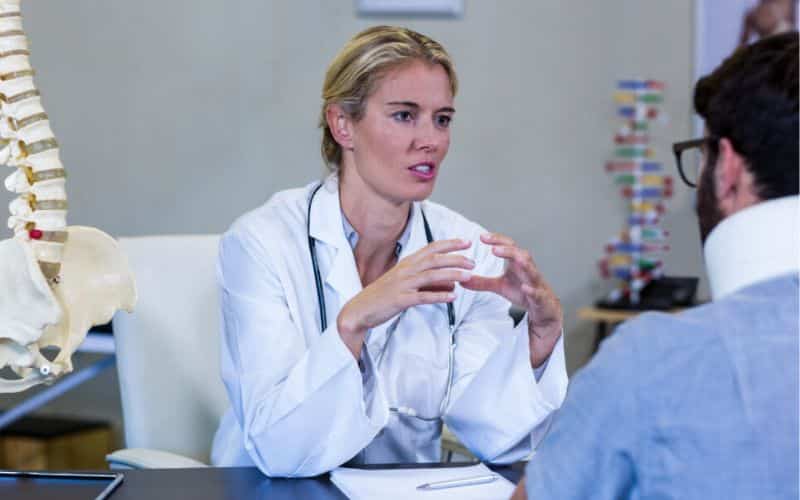
Individuals with scoliosis should consult with an orthopedic specialist to develop a personalized treatment plan. An orthopedic specialist can provide guidance on exercises and activities that are safe and beneficial for individuals with scoliosis. They can also recommend braces or other orthotic devices to help manage the condition.
In conclusion, individuals with scoliosis should take preventive measures to manage their condition and prevent further curvature. Maintaining a healthy weight, regular exercise, and orthopedic consultation are essential components of a comprehensive treatment plan.
Conclusion
While there is no clear consensus on whether weight gain can make scoliosis worse, there are some studies that suggest a possible correlation between body mass and the severity of the condition.
One study published in the International Journal of Environmental Research and Public Health found that a higher body mass index (BMI) was associated with a greater risk of scoliosis progression in adolescents. However, the study also noted that this relationship was not statistically significant after adjusting for other variables such as age, sex, and initial curve magnitude.
Another study published in the Journal of Pediatric Orthopaedics found that obesity was associated with a higher risk of complications following scoliosis surgery. The study concluded that weight loss may be beneficial for obese patients undergoing scoliosis surgery.
While these studies suggest a possible link between weight gain and scoliosis, more research is needed to fully understand the relationship between the two. It is important to note that scoliosis is a complex condition with many factors that can influence its progression, and weight gain is just one of many potential factors to consider.
Overall, it is important for individuals with scoliosis to maintain a healthy weight and lifestyle to support overall health and well-being. However, it is important to consult with a healthcare professional before making any significant changes to diet or exercise routines, especially for individuals with scoliosis.



